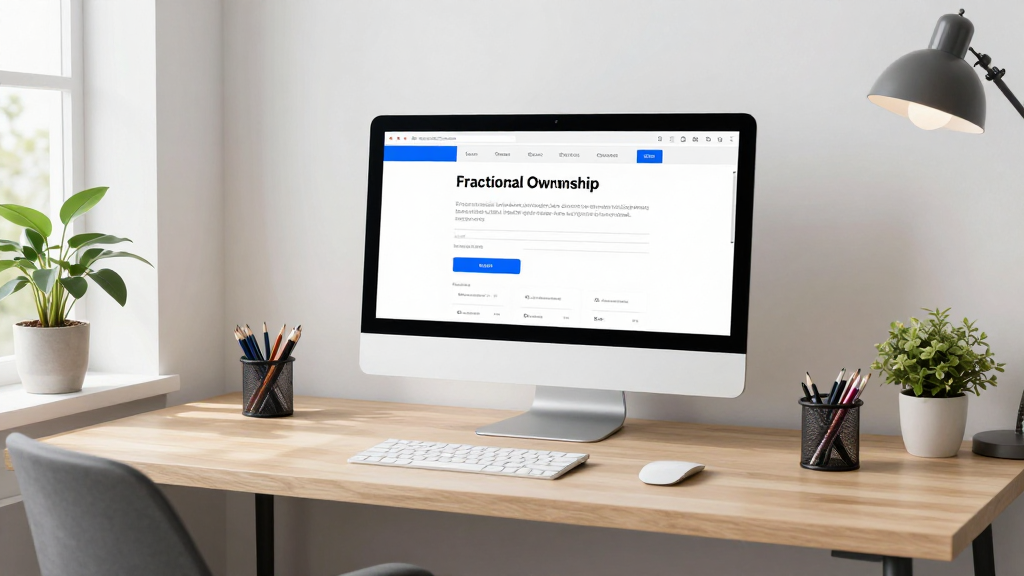Exploring the Benefits of Sole Proprietorships

The term “sole proprietorship” refers to a business owned and operated by a single individual. It is the simplest and most common form of business structure, with over 70% of small businesses in the United States being Sole Proprietorships. As the sole proprietor, you have complete control and flexibility over the business. Making all decisions and keeping all profits.
One of the main advantages of a sole proprietorship is its low startup costs. It is relatively easy and inexpensive to start a sole proprietorship compared to other business structures such as partnerships or corporations. Additionally, sole proprietors are eligible for certain tax benefits. Such as the ability to deduct business expenses from personal income taxes.
However, there are also potential challenges associated with being a sole proprietor. One of the biggest challenges is personal liability. As the sole owner, you are responsible for all debts and legal obligations of the business. This means that your personal assets could be at risk in the event of a lawsuit or financial difficulty.
To start a sole proprietorship, you will need to go through a few key steps. These include registering your business name. Obtaining necessary licenses and permits, and obtaining a tax ID number. It is also important to create a solid business plan and keep accurate financial records for tax purposes. Seeking professional advice can also be beneficial in ensuring the success of your sole proprietorship.
Defining Sole Proprietorships
A sole proprietorship is a type of business structure where an individual is the sole owner and operator of their business. It is the simplest and most common form of business ownership. Known for its flexibility and ease of setup. As the sole owner, you have complete control over all aspects of the business, from decision-making to profits.
This structure differs from other business types, such as partnerships or corporations. Where there are multiple owners and shareholders. As a sole proprietor, you are personally liable for all debts and legal issues related to your business. This means your personal assets, such as your home or savings, can be at risk in the event of a lawsuit or financial trouble. One of the key advantages of a sole proprietorship is the flexibility it offers. You have the freedom to make all business decisions and can easily make changes to your operations to adapt to evolving market conditions. This also means that you are solely responsible for the success and growth of your business.
Benefits of a Sole Proprietorship
There are numerous benefits to operating as a sole proprietor. One of the main advantages is the low startup costs involved compared to other business structures. As a sole proprietor, you have complete control over the management and decision-making processes of your business. This allows for flexibility in adapting to market changes and implementing new strategies. Additionally, sole proprietors also have tax benefits. Such as the ability to deduct business expenses and report profits and losses on their personal tax returns. This can result in higher tax savings compared to other business structures. Overall, Sole Proprietorships offers a simple and cost-effective way to start and run a business, making it an attractive option for entrepreneurs and small business owners.
Challenges of a Sole Proprietorship
Sole Proprietorships come with their unique set of challenges that business owners must be aware of in order to succeed. One of the main challenges of a sole proprietorship is personal liability. As the sole owner of the business, you are personally responsible for all debts and liabilities incurred by the business. This means that if the business faces financial difficulties, your personal assets may be at risk.
In addition to personal liability, sole proprietors also face the burden of managing all aspects of the business. This includes everything from marketing and sales to accounting and operations. This can be overwhelming and time-consuming, especially for those with limited resources and support. To successfully manage these challenges, it’s important for sole proprietors to seek professional advice and support. This can include hiring a lawyer or accountant to help with legal and financial matters, and delegating tasks to employees or contractors. By understanding and managing the challenges of a sole proprietorship, you can set yourself up for success as a business owner.
Steps to Starting a Sole Proprietorship
Starting a sole proprietorship may seem daunting, but with the right steps, you can get your business up and running in no time.
Follow these key steps to establish your sole proprietorship:
Register your business name: Choose a unique and memorable name for your sole proprietorship and register it with your state or county.
Obtain necessary licenses and permits: Depending on your industry and location, you may need to obtain specific licenses and permits to legally operate your business.
Create a business plan: A solid business plan will help guide your business and set goals for growth and success.
Get an Employer Identification Number (EIN): This number, also known as a federal tax ID, is required to hire employees and open business bank accounts.
Set up a business bank account: This will help keep your personal and business finances separate. Making it easier to manage your finances and file taxes.
Consider liability protection: While sole proprietors have unlimited liability, you may want to consider options such as forming an LLC to protect your personal assets.
Keep accurate records: It is crucial to maintain accurate records of your income, expenses, and tax filings as a sole proprietor.
Understand tax responsibilities: As a sole proprietor, you are responsible for filing taxes and keeping up with any changes in tax laws.
Seek professional advice: Consider consulting with a tax expert or attorney to ensure you are meeting all legal and tax requirements for your sole proprietorship.
Starting a sole proprietorship is a process that requires proper planning and understanding of legal and tax responsibilities. By following these steps, you can lay a strong foundation for a successful sole proprietorship.
Tax Considerations for Sole Proprietors
As a sole proprietor, it is important to understand your tax responsibilities and make sure you are in compliance with all relevant laws and regulations. This includes filing taxes and keeping accurate records of your business finances. One of the advantages of being a sole proprietor is the potential for tax benefits. You may be able to deduct certain business expenses, such as office supplies and travel expenses, from your taxable income. Additionally, as a sole proprietor, you have the option to pay estimated taxes throughout the year, instead of a lump sum at tax time.
It is crucial to keep personal and business finances separate to accurately track and report your income and expenses. This can also help you avoid any issues with the IRS or state tax agencies. It is recommended to consult with a tax professional to ensure you are taking advantage of all available deductions and credits and properly managing your taxes as a sole proprietor.
Successful Management of a Sole Proprietorship
Managing a sole proprietorship comes with its own set of challenges, but with proper skills and strategies, it can be a successful venture.
Here are some tips for effectively managing a sole proprietorship:
1. Time Management: As a sole proprietor, you will be responsible for all aspects of your business. It is important to prioritize tasks and manage your time efficiently to ensure that everything gets done.
2. Adaptability: The business world is constantly changing, and as a sole proprietor, it is crucial to keep up with market trends and adapt your business accordingly. This will help you stay competitive and relevant.
3. Seek Professional Advice: As a sole proprietor, it can be overwhelming to handle all aspects of your business. Don’t hesitate to seek professional advice from accountants, lawyers, and other experts to ensure the success of your business.
4. Consider Hiring Employees: If your sole proprietorship is growing, consider hiring employees to help with the workload. This will allow you to focus on your business’s core aspects and delegate tasks to others.
5. Transition to a Different Business Structure: As your business grows, you may want to consider transitioning to a different business structure, such as a Limited Liability Company (LLC), to protect your personal assets and allow for further growth and expansion.
By following these tips, you can effectively manage your sole proprietorship and ensure its success in the long run. Remember to stay organized, adapt to changes, seek assistance when needed, and consider transitioning to a different business structure as your business grows.
Conclusion
In conclusion, understanding sole proprietorships is crucial for anyone considering starting their own business. This article has covered the definition, advantages, challenges, and necessary steps to set up a successful sole proprietorship.
As we have discussed, the benefits of a sole proprietorship include complete control, low startup costs, and potential for growth. However, there are also challenges, such as personal liability, that must be managed effectively.
By following the steps outlined in this article, including registering your business, managing finances, and staying on top of taxes, you can successfully run a sole proprietorship. It is important to stay informed and seek professional advice when needed.
From managing your time and setting goals to adapting to changes and possibly hiring employees, running a sole proprietorship requires dedication and determination. But with the right mindset and resources, you can turn your sole proprietorship into a thriving business.
We hope this article has provided you with a comprehensive understanding of sole proprietorships and the necessary tools to start your own. Remember, the key to success is staying informed, planning ahead, and taking action.
https://fiscalfitnessflow.com/index.php/2024/05/27/entrepreneurship-explore-the-world-of-entrepreneurship/
https://www.sba.gov/
FAQs
Q: What is a sole proprietorship?
A: A sole proprietorship is an unincorporated business owned and operated by one individual.
Q: What are the advantages of a sole proprietorship?
A: The advantages of a sole proprietorship include simplicity in formation, complete control over decision-making, and all profits going directly to the owner.
Q: What are the disadvantages of a sole proprietorship?
A: The disadvantages of a sole proprietorship are unlimited personal liability for business debts, difficulty in raising funds, and the lack of separation between personal and business assets.
Q: How does a sole proprietorship differ from an LLC or corporation?
A: A sole proprietorship does not offer limited liability protection like an LLC or corporation, meaning the owner is personally responsible for all debts and obligations of the business.
Q: Is it easy to start a sole proprietorship?
A: Yes, starting a sole proprietorship is relatively easy compared to other business entities. It usually involves obtaining any required licenses and permits to operate the business.








